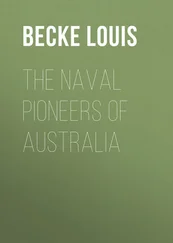Where two ships of similar armament fought one another, it is easy to get the comparative force by simply comparing the weight in broadsides, each side presenting very nearly the same proportion of long guns to carronades. For such a broadside we take half the guns mounted in the ordinary way; and all guns mounted on pivots or shifting. Thus Perry's force in guns was 54 to Barclay's 63; yet each presented 34 in broadside. Again, each of the British brig-sloops mounted 19 guns, presenting 10 in broadside. Besides these, some ships mounted bow-chasers run through the bridle-ports, or stern-chasers, neither of which could be used in broadsides. Nevertheless, I include them, both because it works in about an equal number of cases against each navy, and because they were sometimes terribly effective. James excludes the Guerrière's bow-chaser; in reality he ought to have included both it and its fellow, as they worked more damage than all the broadside guns put together. Again, he excludes the Endymion's bow-chasers, though in her action they proved invaluable. Yet he includes those of the Enterprise and Argus , though the former's were probably not fired. So I shall take the half of the fixed, plus all the movable guns aboard, in comparing broadside force.
But the chief difficulty appears when guns of one style are matched against those of another. If a ship armed with long 12's, meets one armed with 32-pound carronades, which is superior in force? At long range the first, and at short range the second; and of course each captain is pretty sure to insist that "circumstances" forced him to fight at a disadvantage. The result would depend largely on the skill or luck of each commander in choosing position.
One thing is certain; long guns are more formidable than carronades of the same calibre. There are exemplifications of this rule on both sides; of course, American writers, as a rule, only pay attention to one set of cases, and British to the others. The Cyane and Levant threw a heavier broadside than the Constitution but were certainly less formidably armed; and the Essex threw a heavier broadside than the Phoebe , yet was also less formidable. On Lake Ontario the American ship General Pike threw less metal at a broadside than either of her two chief antagonists, but neither could be called her equal; while on Lake Champlain a parallel case is afforded by the British ship Confiance . Supposing that two ships throw the same broadside weight of metal, one from long guns, the other from carronades, at short range they are equal; at long, one has it all her own way. Her captain thus certainly has a great superiority of force, and if he does not take advantage of it it is owing to his adversary's skill or his own mismanagement. As a mere approximation, it may be assumed, in comparing the broadsides of two vessels or squadrons, that long guns count for at least twice as much as carronades of the same calibre. Thus on Lake Champlain Captain Downie possessed an immense advantage in his long guns, which Commodore Macdonough's exceedingly good arrangements nullified. Sometimes part of the advantage may be willingly foregone, so as to acquire some other. Had the Constitution kept at long bowls with the Cyane and Levant she could have probably captured one without any loss to herself, while the other would have escaped; she preferred to run down close so as to insure the capture of both, knowing that even at close quarters long guns are somewhat better than short ones (not to mention her other advantages in thick scantling, speed, etc.). The British carronades often upset in action; this was either owing to their having been insufficiently secured, and to this remaining undiscovered because the men were not exercised at the guns, or else it was because the unpractised sailors would greatly overcharge them. Our better-trained sailors on the ocean rarely committed these blunders, but the less-skilled crews on the lakes did so as often as their antagonists.
But while the Americans thus, as a rule, had heavier and better-fitted guns, they labored under one or two disadvantages. Our foundries were generally not as good as those of the British, and our guns, in consequence, more likely to burst; it was an accident of this nature which saved the British Belvidera ; and the General Pike , under Commodore Chauncy, and the new American frigate Guerrière suffered in the same way; while often the muzzles of the guns would crack. A more universal disadvantage was in the short weight of our shot. When Captain Blakely sunk the Avon he officially reported that her four shot which came aboard weighed just 32 pounds apiece, a pound and three quarters more than his heaviest ; this would make his average shot about 2 1/2 pounds less, or rather over 7 per cent. Exactly similar statements were made by the officers of the Constitution in her three engagements. Thus when she fought the Java , she threw at a broadside, as already stated, 704 pounds; the Java mounted 28 long 18's, 18 32-pound carronades, 2 long 12's, and one shifting 24-pound carronade, a broadside of 576 pounds. Yet by the actual weighing of all the different shot on both sides it was found that the difference in broadside force was only about 77 pounds, or the Constitution's shot were about 7 per cent, short weight. The long 24's of the United States each threw a shot but 4 1/4 pounds heavier than the long 18's of the Macedonian ; here again the difference was about 7 per cent. The same difference existed in favor of the Penguin and Epervier compared with the Wasp and Hornet . Mr. Fenimore Cooper 47 weighed a great number of shot some time after the war. The later castings, even weighed nearly 5 per cent, less than the British shot, and some of the older ones, about 9 per cent. The average is safe to take at 7 per cent. less, and I shall throughout make this allowance for ocean cruisers. The deficit was sometimes owing to windage, but more often the shot was of full size but defective in density. The effect of this can be gathered from the following quotation from the work of a British artillerist: "The greater the density of shot of like calibres, projected with equal velocity and elevation, the greater the range, accuracy, and penetration." 48 This defectiveness in density might be a serious injury in a contest at a long distance, but would make but little difference at close quarters (although it may have been partly owing to their short weight that so many of the Chesapeake's shot failed to penetrate the Shannon's hull). Thus in the actions with the Macedonian and Java the American frigates showed excellent practice when the contest was carried on within fair distance, while their first broadsides at long range went very wild; but in the case of the Guerrière , the Constitution reserved her fire for close quarters, and was probably not at all affected by the short weight of her shot.
As to the officers and crew of a 44-gun frigate, the following was the regular complement established by law: 49
1 captain,
4 lieutenants,
2 lieutenants of marines,
2 sailing-masters,
2 master's mates,
7 midshipmen,
1 purser,
1 surgeon,
2 surgeon's mates,
1 clerk,
1 carpenter,
2 carpenter's mates,
1 boatswain,
2 boatswain's mates,
1 yeoman of gun-room,
1 gunner,
11 quarter gunners,
1 coxswain,
1 sailmaker,
1 cooper,
1 steward,
1 armorer,
1 master of arms,
1 cook,
1 chaplain.
__
50
120 able seamen,
150 ordinary seamen,
30 boys,
50 marines. _
Читать дальше












